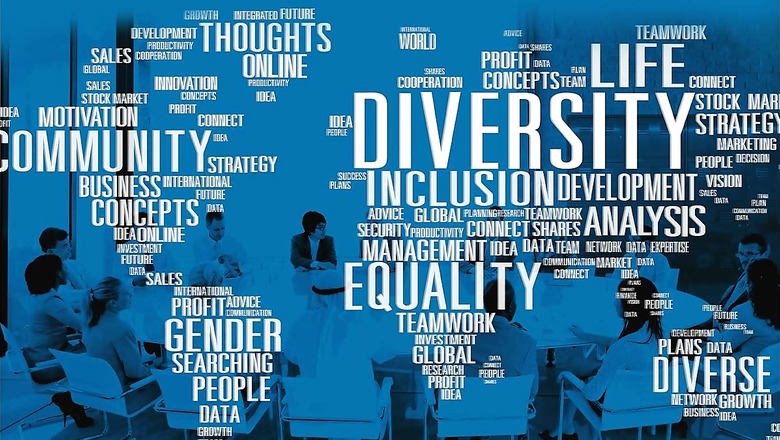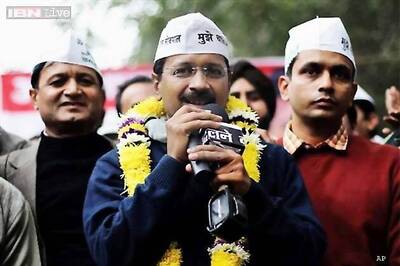
views
When it comes to the hierarchy of needs, the need for clean and safe toilets ranks right up there with the need for good nutrition, basic income, housing and healthcare. At a societal level, it is when we take care of these basic needs, that our people can look beyond mere survival, and aspire to something greater.
António Guterres, United Nations’ Secretary-General has written that toilets save lives. The World Health Organization estimates that 432,000 people die each year from diarrhoeal diseases caused by poor toilet sanitation, with children under the age of five being the most vulnerable. According to the World Bank, poor toilet sanitation costs the global economy $260 billion per year in lost productivity. When we don’t provide clean and safe toilets to women at schools, they drop out. On the other hand, for every dollar invested in toilet sanitation, there is a fourfold return in increased productivity and reduced healthcare costs. Economic benefits include an overall estimated gain of 1.5% of global GDP and a $4.3 return for every dollar invested in water and toilet sanitation services due to reduced health care costs for individuals and society.
After the Swachh Bharat Mission, every Indian has access to toilets. As our toilet sanitation practices improve, so does the health of our communities, even when we define our communities at the city level. Lower disease burden means higher productivity in our offices, factories and homes, and better attendance in our schools. The line from accessible toilets to economic progress is a direct one.
And yet, we have a community in our midst that has not benefited from these improvements. Individuals who identify as transgender, intersex or non-binary can’t squeeze themselves into male or female identities, to be able to use our gendered toilets. Whether they choose to go to the ladies toilet or gents toilets, they are always at risk of being called out, humiliated, shunned, asked to leave the premises, verbally attacked and in some cases, even physically harmed.
When transgender, intersex and non-binary people don’t have gender neutral bathrooms and must use gendered spaces, they are at risk of being verbally harassed in public restrooms, physically attacked, and sexually assaulted. Toilets are an integral part of the United Nations Sustainable Development Goals (SDGs), which call for ensuring access to water and sanitation including clean & safe toilets for all, and reducing inequalities based on gender, disability or any other status.
For the LGBTQ+ community, one of the pivotal areas where the community needs allies is in ensuring equal access to public amenities, particularly hygienic toilets.
How allies have fought for LGBTQ+ rights in the past, and won
The fight for LGBTQ rights in India is largely led by grassroots movements and the current push for marriage equality is only the latest example. The fight to repeal Article 377 reads almost like an epic in itself, and is a testament to the staying power and effectiveness of grassroots movements in India. It took 17 years of advocacy and litigation, but in 2018, a more progressive bench revisited the issue. The court unanimously struck down the law and apologised for the delay in ensuring rights for LGBTQ+ people.
What we need now is a similar push for toilet inclusivity – we all need a safe, hygienic, private space to go to the toilet. Right now, our gendered toilets are neither welcoming, nor safe for transgender, intersex and non-binary individuals.
The more visibility we bring to the issue, the more acceptance it creates. As with the successful push to repeal Article 377, the movement built support from the ground up: conversations led to understanding, understanding led to acceptance, acceptance led to advocacy. It’s important to note that it wasn’t only the LGBTQ+ community who marched against Article 377, their cisgender allies did too.
That’s how lasting change is made – when we stand up for one another.
How can you be an effective ally?
Advocacy is not just the work of activists and NGOs; it is a collective responsibility that involves all of us. Advocacy comes in all shapes and stripes – it doesn’t need to involve protest marches, but it can, if that’s what you want to do. It doesn’t need to involve grand gestures of support either. Sometimes, the most important work we do is in the small, everyday conversations we have.
Start with educating yourself. Understand the issues faced by the LGBTQ+ community, particularly with regard to access to public toilets. Learn about the different gender identities and expressions, and the unique challenges faced by each. Harpic and News18’s Mission Swachhta aur Paani initiative has some great content you can dip into on its website.
Once you feel like you have a good enough grasp of the issues at hand, talk to people in your orbit. It is easier for people to accept a new idea when it comes from a friend, a family member or a colleague, than it is from reading an article somewhere. Each conversation you have, even unsuccessful ones, adds up. You’re moving the needle, one conversation at a time.
Another way to show support is to consider participating in advocacy efforts. Join campaigns, sign petitions, take part in meetings and demonstrations that focus on advocating for gender-inclusive public toilets. Next, support NGOs and grassroots organisations. Contribute in terms of money and/or time to these organisations – they always have a number of projects up in the air, and you never know where your expertise (or just your presence!) may be best used.
Work with the corporate sector. This is what CSR programs are made for! Encourage them to contribute to initiatives that focus on providing equal access to hygienic toilets for all. Even if you don’t succeed, you’ll have given them ideas on what they can do, in their own business. Imagine the ripple effect of every corporation making the switch from gendered to gender neutral toilets… and you’ll have played a part in making it happen. Of course, if you’re a business owner yourself, consider turning your own gendered toilets into gender neutral ones.
Engage with Local Government: Write letters, emails, or meet local representatives to communicate the importance of inclusive public toilet sanitation facilities. Propose policy changes and suggest measures to make existing facilities more accessible – you know your locality best. Try and drum up support from your friends, or through your posts on social media, reach out to local celebrities and other people with a large following, and ask them to back your requests.
Mighty corporations make mighty allies
Corporations with their deep pools of resources can be potent drivers of change. The Swachh Bharat Mission is a great example of this. The GoI joined hands with several organisations across various stages of the program. To name a few, Mahindra Group, Larsen & Toubro, IndusInd Bank, Tata Consultancy Services and Adani Group contributed to construction of toilets, or set funds aside for them.
Harpic, India’s leading brand in the lavatory care segment, has worked on several initiatives that are adjacent to the Swachh Bharat Mission – for instance, the establishment of Harpic World Toilet Colleges. Harpic has also taken the lead in designing campaigns and initiatives that not only focus on toilet sanitation but also inclusivity.
Creating awareness about the struggles faced by LGBTQ+ individuals and sensitising the public and policymakers is an essential aspect of advocacy. Initiatives like Harpic and News18’s Mission Swachhta aur Paani transcends the concept of cleanliness alone. It is a movement that recognizes the profound significance of toilets, viewing them not merely as functional spaces but as beacons of safety and acceptance for the marginalised. This exceptional mission is built upon the firm belief that clean and inclusive toilets are vital for fostering a society that embraces and empowers us all, unconditionally. With unwavering dedication, Harpic and News18 actively include and advocate for the LGBTQ+ community, propelling the message that every individual deserves access to safe and accepting spaces, where their dignity is upheld, and their presence is celebrated.
By joining forces with Mission Swachhta aur Paani, advocacy groups are able to raise awareness about the particular challenges faced by the LGBTQ+ community as well as galvanise public support for inclusive toilet sanitation policies.
Embracing our diversity
Anyone who lives in India’s metros can attest to our blended and diverse society. We learn, work and play side by side with people who speak different languages, pray to different gods, vote for different political parties, celebrate different festivals and come from all parts of the socioeconomic spectrum. When we can embrace all these differences, why do we draw the line at gender diversity?
That too, when India has a long legacy of embracing diverse genders. The Hijra community, which comprises of transgender, intersex and eunuch individuals, has always been a part of our royal courts and cultural ceremonies, our weddings and our death rituals. Before colonisation, the community was considered both enigmatic and revered.
We have shed so much of our colonial past. We are a vibrant economy that has overtaken some of the world’s strongest economies to claim the 5th largest economy spot, and are headed to claim third place soon. Our literacy rate has jumped from a mere 18.3% in 1951 to 77.7% in 2022. We are the world’s leading adopters of technology, be it mobile penetration, digital payments, or even telemedicine. We are, in essence, stepping confidently into the future.
In 1947, we shed the mindset that we weren’t fit for self rule. We have steadily worked to erase mindsets that treat women as inferior, and “good only for housework”. We have a steady, burgeoning and diverse workforce brimming with well qualified women – all the way from STEM to the arts. We are breaking the shackles of our caste system to the point where most of us who grew up in metros have no idea what castes we or our parents belong to.
Isn’t it time we shed the last vestiges of our colonial mindsets by wholeheartedly embracing gender inclusivity too? Let’s do it. Let’s create a society where all of us have acceptance, respect and dignity. Let’s create spaces where all of us feel safe and welcome. Let’s change the dialogue from ‘other’ to ‘us’. Let’s be allies.
To quote PM Narendra Modi, our diversity is our greatest strength. Join us here, in learning how you can participate in this national transformation.




















Comments
0 comment